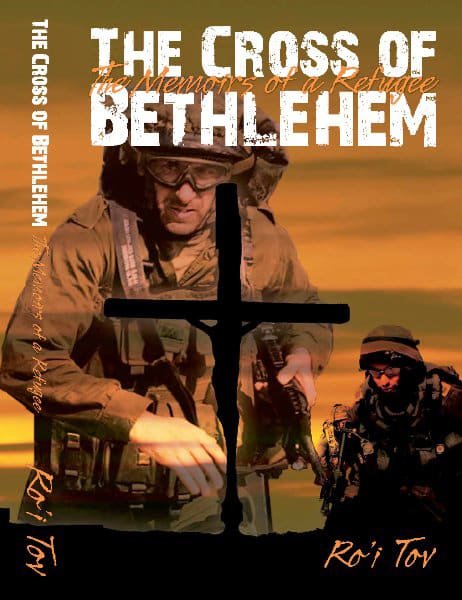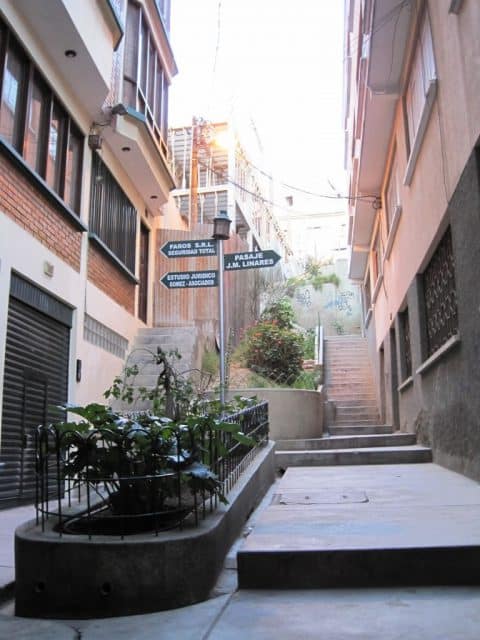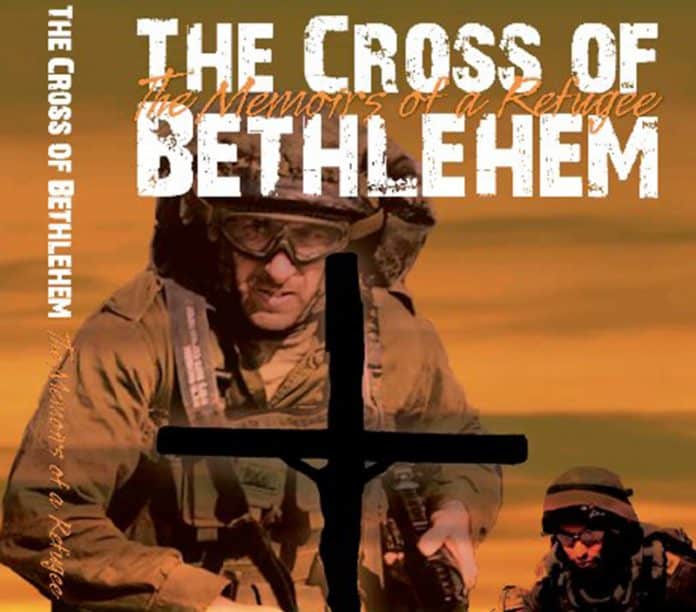 Roi Tov, author of The Cross of Bethlehem and a columnist for VT, is missing, and some are speculating that he may have been permanently silenced by Israel.
Roi Tov, author of The Cross of Bethlehem and a columnist for VT, is missing, and some are speculating that he may have been permanently silenced by Israel.
Tov formerly served as an officer in the Israeli military, but unable to stomach the day-to-day horrors of occupation, he converted to Christianity and began to speak out publicly on the Jewish state’s massive record of human rights violations. His actions led to a terminus of his Israeli citizenship and a flight from the country. Eventually he settled in Bolivia, where he was initially given refugee status, but Tov, in a number of blog posts, expressed the view that Bolivia and the government of Evo Morales had in essence made a Faustian bargain with Israel to turn his life into a living hell. He soon found himself stalked on the streets of La Paz and at times physically assaulted (see second article below).
Tov’s experiences are related in his two books, The Cross of Bethlehem, published in 2009, and The Cross of Bethlehem II, released in 2012.
In his last blog posts he expressed the view that he had been targeted for assassination. His very last post, in late August of 2014, ends with the words, “Thank you for having read me in recent years.”
***
Roi Tov Silenced
By Ariadna Theokopoulos
According to a report by Eileen Fleming, Roi Tov may have been silenced permanently.
Israeli dissident and prolific writer, Roi Tov was born in South America and grew up as Reuven Schossen, in a tight-knit communist kibbutz along the Jordan Valley.
After four years of service in the Israeli Defense Force, Captain Schossen became a reservist and graduated with four degrees; three in chemical physics.
In Tov’s second book, The Cross of Bethlehem II: Back in Bethlehem he writes:
The year was 1983, but at school we were already studying Orwell’s 1984 a book which frightened us by its similarity to life in Israel.
The Lebanon War, which had begun a year earlier, was still called ‘the War for the Peace of Galilee’ by the government.
The Hebrew possessive contraction brought together the two words which sounded exactly like ‘War-Peace,’ creating a perfect Orwellian oxymoron.
We all skipped the obvious contemporaneous context of the book in our commentaries; such semantics could belong only to the enemy and we lived in an enlightened society.
Our government could not have made such an Orwellian choice consciously. And yet a little voice in my head told a different story, one that must be kept to myself. The glitch allowing such a subversive book to be on our reading list could only be interpreted as some inconsistency of the system.
However, a frightening alternative explanation was that “1984” had been placed on the Education Ministry’s official list of books intentionally, so that we would forever fear authority and behave. It was our first lesson in government manipulation of its people.
Eileen Fleming continues:
In an April 2012 email conversation with Tov he wrote:
“In The Cross of Bethlehem II there is one chapter dedicated to Mordechai Vanunu, a true hero of our era. I expand there on the reasons for his and our persecution.
“On three other central chapters in the book I expand on what he has described as ‘psychological torture,’ but I prefer to call ‘psychological warfare.’”
On June 27, 2014, Tov wrote:
My situation is approaching its end. In August, my foreign ATM card expires. I will not be able to withdraw funds or to perform Internet transactions.
Denied my documents by the Bolivian government, which stole them, it is impossible to receive a new one by mail.A few days after that, I will be forced to leave the cheap guesthouse which had become my prison and be on the streets.
This is a police state. They check documents at the access point to the cities. I cannot leave La Paz.
In the violent Bolivian reality it means certain death during the first night…
On June 28th, Eileen asked him: What can I do?
Tov replied:
Thank you, Eileen,
There are a lot of things you can do now. Keep caring of yours; keep the world aware of Vanunu. Keep doing good.
If you asked particularly regarding me, then there is nothing to do. Israel wants me dead and hired the violent, freakish, Mickey Mouse society that offered me refuge in bad faith.
It is time for the long nap. Meanwhile, I will publish as much as I can for as long as I can…
“As of this writing,” Eileen says, “Tov has not replied to my recent emails, and although he had published on a daily basis for over two years he has NOT published anything since his concluding comment posted on August 27, 2014:
If nothing changes, I will die assassinated on the Bolivian streets within a fortnight.
The word “assassin” is derived from “hashish;” a historic group of murderers consumed the drug. Probably there is no better choice of words to describe the druglord running the corrupt country killing me softly by orders of the State of Israel.
Years ago I promised never to give up, to write as much as I can for as long as I can. Contrary to Netanyahu and his killers, I am a man of word and honor. Not surrendering against a force larger than me by many orders of magnitude, I lose my life but gain my soul.
May God show His mercy upon all victims, who relentlessly shout: “Pharaoh, Let my People go.”
This is the site created and maintained for many years by a man of conscience, compassion and honor and a very brave man: Roi Tov.
This is a great interview he gave to Cristopher Bollyn, and this is a video of another interview with Daryl Bradford Smith in which he speaks.
Tov’s blog, at RoiTov.com, still remains online, though it is unclear how long that will continue to be the case, and those with an interest in archiving the material there, might wish to do so while the opportunity exists.
The following is a post from the blog in which Roi describes being attacked by Israelis on the streets of La Paz.
An Attack’s Anatomy: On Israeli-Bolivian Terror
And no marvel; for Satan himself is transformed into an angel of light—2 Corinthians 11: 14

By Roi Tov
In the early morning of July 23, 2009, I was forced to leave the church building where I was living. It was a few minutes before 7 AM. The noise was unbearable. In an archetypal form of torture, I was being denied sleep. I had spent the two previous nights trying to avoid the noise. I moved from the room on the roof to the toilets in the basement. It didn’t help. The neighbors on the other side of the toilet wall were collaborators and aimed sound devices at me. I tried night walks, but the neighborhood was dangerous. After a few close encounters of the third kind with drunken Bolivian zombies, I gave up.
That morning, I left the building and headed downwards, towards La Paz downtown. I chose to move through the Apumalla River. As with most rivers crossing the city, it is covered up; this one passes near the church and is not paved. It provides a quick access by foot to downtown while being inaccessible to cars. Several roads cross it and twice on my way down suspicious 4×4 trucks crossed my path. They advanced too slowly, as if in a reconnaissance mission, and were out of place. Normally at that hour, I never met even one. I advanced faster, and finally reached the Santa Cruz and Illampu corner a few minutes later. This was the site of “El Lobo,” an Israeli restaurant, which apparently doubles as a Mossad substation. Invigorated by the exercise, I moved downwards through Santa Cruz Street. This was the fastest way of reaching downtown. In despair, I wanted to create distance between me, El Lobo, and the dubious trucks.
Somewhat further down that street, four Israeli men were waiting. Probably following their expectations, I moved away from them as fast as possible, entering the Linares alley. This was the center of the backpackers’ area. It featured many souvenir stores, travel agencies and cheap guesthouses half hidden in a maze of narrow alleys. Fearing they would get me, I turned left and began descending a steep and unnamed pathway leading to Murillo Street and to what I hoped would be safety. Halfway down, I heard some muffled steps behind me. I turned around just when a small, stocky Bolivian man reached me, bypassed me, and stopped about a yard ahead of me, blocking my escape route. “Roy,” he said. That was impossible; I use a Spanish name with Bolivians. Sensing what was happening, I turned backward just in time to see one of the Israelis that I had seen instants before on the Santa Cruz Street. Another man who was out of sight, jumped on me from behind; his arm wrapped my throat. He had a solid piece of metal on the inner part of his elbow; he pressed it on the lower part of my neck. He pulled backwards, and I fell. Another criminal picked up my feet. Pushing them away from me, he increased the pressure on my neck. I heard the latter making a funny noise, and I lost consciousness.
I was awake. Nobody was near me. My backpack and all my documents had been taken away. I stood up. Nothing seemed broken, though my neck felt strange. I headed down to Murillo Street. Unsurprisingly, there were two policemen waiting there. Crime in Bolivia pays dividends to the police; seldom is a crime committed without the police knowing or even abetting it. This was not a secret; it regularly appeared all over the Bolivian media. I approached them and shouted “I’ve been attacked.” Despite their standing next to me, the policemen barely heard the faint whisper that came out of my wrecked throat. I repeated “I’ve been attacked,” and pointed at the alley.
The two policemen began running into the alley. I wasn’t sure if they wanted to see the crime scene or if they were running away from me. I followed them. We stopped at the attack spot. I explained to them what happened. They charged upwards; I followed them. We reached the Linares Alley. It was deserted. From there, we walked to Santa Cruz Street and took a look. One of the policemen began speaking with me, while the second one entered the Jimenez Alley. Seconds later, the second came out holding in his hand one of my obsolete Bolivian ID documents; it was the only item that had survived the attack. Why would the attackers waste time in picking up this item among all my belongings? More odd things happened. The first policeman stopped a young man walking down the street. They knew each other; the policeman asked him if he saw anything. The man denied seeing anything, and was released. Then the policemen told me “Go to the PTJ,” and they were all gone.
PTJ is the acronym for “Policia Tecnica Juridica,” the part of the Bolivian police dealing with crime. Downtown La Paz is small; most official institutions are close to each other. I headed towards the national headquarters; they provide services on a 24/7 basis. Minutes later I was there and approached the counter where charges could be placed, I knew it since I had visited it after an earlier attack. It was empty. I stood there until a police officer appeared. “It’s closed, come back at 9 AM,” he told me. It was impossible. I pointed to a couple being attended to inside. “It’s closed, come back at 9 AM,” he repeated, unambiguously displeased with my observation.
There was nothing I could do. Back on the street I went to the nearby UTOP’s headquarter. “We deal only with riots, go to the Forensic Center.” The Forensic Center was closed. A police on a nearby street told me to go to the Transit Police Headquarters. “We don’t deal with that; you’ll find a tourist police officer at the San Francisco Church,” I was told at the transit. Eventually this policeman went with me to the nearby church. There were no signs of policemen there; it was too close to the crime scene and that may explain their absence. I went to the refugees’ office, which is near the transit police building. I entered and waited by the door. They weren’t expected to appear before 8:30 AM. Several items had been taken from my pockets; my clothes were in an appalling shape. My shirt was torn, and my throat was throbbing.
Disapproving of my untidy appearance, the policeman guarding the building—he knew me well—told me not to wait inside and took me out of the building.
I stood next to the building until one of the personnel arrived. The refugees’ lawyer was summoned immediately. “The Tourist Police is open round the clock, let’s go there,” he told me. Minutes later I laid the first formal charge. The police officer there kept changing times and places. I had to correct her several times. She was trying to invalidate the charges. Afterwards, we went to the PTJ, which by then was open. I made a second charge there. The PTJ officer kept changing the hours and places I mentioned. “Can you recognize the face of the Bolivian accomplice?” he asked. “Yes,” I said; the lawyer had told me that I’ll be shown an album of criminals’ pictures. However, as soon as I confidently said: “yes,” the officer cut short our meeting. Nobody wanted me to recognize the criminal.
From there I reached the Forensic Center and coordinated a visit for the early afternoon; the physician also told me there was no problem in approaching the emergency room before the forensic test. Soon afterwards I was at the emergency room of a Catholic hospital which cooperates with the refugees’ office. I had no intention of letting them perform intrusive tests or to let them inject me with drugs. Local hospitals are famous for causing infections that demand additional treatments (and create bonus incomes for the hospital). A physician examined my throat. He wanted to give me cortisone to avoid the inflammation. I refused. They refused to let me go. “You’ll suffocate to death otherwise,” a nurse told me. They brought a new syringe and showed me the cortisone ampoule. Eventually, after some thirty minutes, I began experiencing difficulties in my breathing and agreed to the injection.
In the early afternoon, I returned for the forensic examination. While waiting in the large inner yard of the building, Raul Gonzales appeared. He was the Bolivian intelligence officer described in The Cross of Bethlehem. In March 2007, he had admitted “Israel asked us to keep an eye on you.” His son is one of the Bolivians working in a joint false-missionaries program with the CIA; Bolivian missionaries can enter where Americans cannot. I ignored him. Then, the physician told me my throat had been badly crushed. Later that year permanent damage to my throat was diagnosed; its deterioration is slow and steady. Nobody hearing the story doubted that the Israelis and the local police had carried out a joint crime; apparently the Bolivian intelligence had also enjoyed a profitable role. Thirty coins of tin for a Bolivian Judas.
It was Thursday. In the early evening, there was a service at the church. I appeared with my torn shirt. “I want to speak,” I said to Wilson, the congregation’s president. “No,” he said. By then, the cortisone began doing its job. I could speak, though with pain. The pastor walked to the pulpit and began praying; everybody knew what had happened.
“Oh Lord, why did You abandon us?” began the pastor.
I didn’t let him finish. I walked toward the pulpit and stood next to him. Eventually he cut short his prayer. Humiliated, he left the pulpit. He was one of those that sold me. “Thank you Lord for having let me pass another test,” I began. The sentence left the pastor with no air; he collapsed into his chair. He had been shown his attitude was not Christian. He now understood his error.
“I have failed here; years I teach and preach the same message, and yet you do not comprehend that informing on a brother is a sin,” I continued.
People cried. Yet, they had sold me and were not repentant. In November, I left the church. Much later, I met one of the congregation members. He told me two members had left the congregation after this. One of them, Sergio, was the husband of Wilson’s half-sister. He knew I had been sold, and, as an answer, took his entire family out of the devil’s nest. Not everybody was guilty; not all of them were collaborators. Almost two millennia before that, Apostle Paul had warned us in Galatians 2:4 And that because of false brethren unawares brought in, who came in privily to spy out our liberty which we have in Christ Jesus that they might bring us into bondage.
Bolivia had accepted me as a refugee and then had sold me out to my persecutors. What does that say about them?
ATTENTION READERS
We See The World From All Sides and Want YOU To Be Fully InformedIn fact, intentional disinformation is a disgraceful scourge in media today. So to assuage any possible errant incorrect information posted herein, we strongly encourage you to seek corroboration from other non-VT sources before forming an educated opinion.
About VT - Policies & Disclosures - Comment Policy




